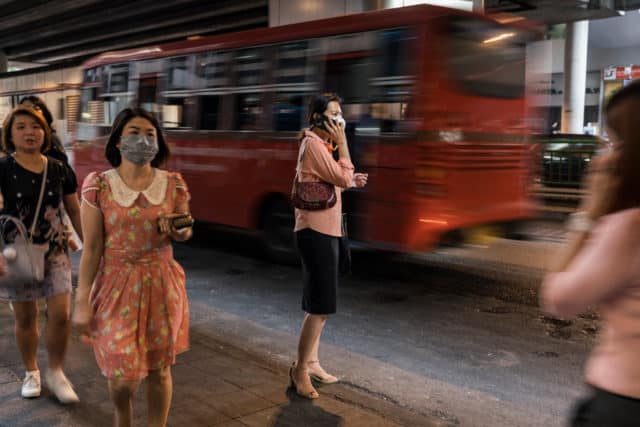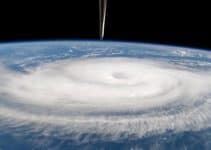Poor air quality, at last, forced the Thai officials to order closing down 400 schools and more for the rest of the week. The air pollution level in Thailand’s capital, Bangkok, is so bad that Governor and Police General Asawin Kwanmuang had no other way out but to shut down the schools to save the children from its dangerous effect on health.
As The Associated Press reported, Asawin said,
We decided to eliminate the problem by closing down the schools. We’re afraid that it can be dangerous for the children
Prime Minister Prayuth Chan-ocha instructed Asawin to order the closure of 437 schools on Wednesday. All the city-managed public schools come under the purview of this official order, however, according to CNN at least three private international schools, the Rasami British International School, the Harrow International School Bangkok, and Bangkok Patana School, also opted to close.
The Air Quality Index for Bangkok was 175 on Wednesday evening which is seven times higher than AQI levels under 25 as per World Health Organization (WHO). The reason was a dangerous tiny “PM 2.5” particles that have risen in the air in all the areas in Bangkok and around due to still air and heavy traffic.
PM 2.5 is a mixture of liquid droplets and solid particles that can include dust, soot, and smoke, one of the primary measures of the Air Quality Index (AQI). These particles are so small that they can easily enter deep into the lungs and other organs causing a fatal effect on health.
According to the Department of Pollution Control, 41 areas around the city were at unsafe levels. After reassessing the situation on Sunday, the officials will determine whether the schools will reopen or remain closed.
Hannah Beech wrote in The New York Times that a battle is going on for weeks between smog and Bangkok. The increased Pollution levels also brought a heavy haze to Chiang Mai and other northern areas of Thailand in advance of the annual “smoky season” that starts in late February. The reasons include low wind during the dry season, unchecked industrialization, burning of fields by farmers and dominant car culture.
Tara Buakamsri, Thailand country director for Greenpeace Southeast Asia told The New York Times” In our society, a car is not just a car; It’s a representation of affluence and a symbol of ownership. It will be very hard to get people to give up their cars.”
“Bangkok is a megacity, one of the biggest megacities in Southeast Asia. There is an ever-increasing number of automobiles on the road causing the emissions of different kinds of air pollution — particularly diesel cars releasing PM2.5,” Buakamsri explained, before adding, “Another source is coming from factories.”
Bangkok was the fifth most polluted city in the world as per the air quality reading on Wednesday, Reuters reported. New Delhi, the capital of India, ranked first at 257.
Temporary solutions have been applied to alleviate the problem like seeding clouds, hosing down the roads and spraying water from cannons in the air. However, these efforts were criticized for being ineffective.
The Associated Press reported that Asawin declared the city a “pollution control zone.” The government authorities are allowed to take legal measures to reduce diesel exhaust, pollution from construction or smoke from outdoor fires. The measures include closing roads or diverting traffic and imprisonment of up to three months for anyone who violates the orders to curb pollution.
However, as per the residents of Bangkok, the efforts made were for a temporary solution, and those were unable to reach the root of the problem to find a more effective solution.
The father of a 5-year-old student, Mongkolsak Lajina, said “I don’t think it will help much. It helps that students do not have to commute to schools. But we need better measures to effectively deal with this problem.”
“These measures will help only temporarily,” Aek Pongpairoj, a doctor in Bangkok told The Associated Press. “If we want a long-lasting solution, all sectors must be involved, not just government agencies; for example, the private sector involving construction. There are so many construction sites and I can see that preventive measures aren’t enough.”
The Public Health Ministry advised people to stay away from outdoor activities and exercise, and instead look for indoor activities. The commuters and pedestrians have started wearing face masks in this situation.
The pollution level becomes high as Bangkok is preparing for the celebration of the Lunar New Year next week. Reuters reported, the residents of the Bangkok have been asked to limit open air fireworks and incense burning on this occasion.






